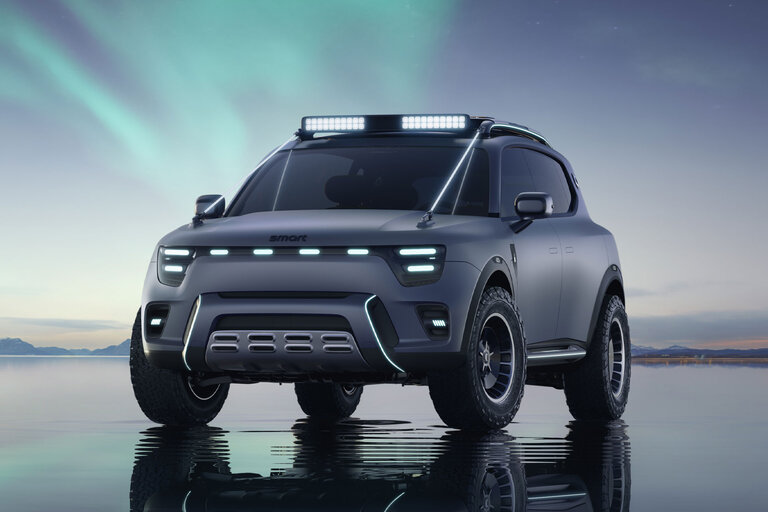
Lilly RoadstonesGetty Images
Personal auto insurance mitigates the costs of an accident involving private passenger vehicles. Not only does personal auto insurance protect you from economic loss, but the majority of states require it to legally operate a vehicle.
Personal Auto Insurance: The Basics
Personal auto insurance provides coverage for private passenger vehicles. If you’re in an accident and found to be at fault, your car insurance will pay for the other driver’s car repairs and medical care under your liability coverage. To cover damage done to your car, you need comprehensive and collision coverage.
The price of an insurance policy, according to Investopedia, varies by driver and depends on factors like age, gender, and driving history. While a handful of states don’t require drivers to carry insurance, most states do have minimum requirements that drivers have to meet. The minimum differs in every state, and many drivers prefer to purchase more coverage than their state’s minimum. If you’re financing or leasing a car, your lending company will usually require you to carry auto insurance even if your state doesn’t.
You can expect to pay more for your insurance if you have a poor driving record or you want extra coverage. However, if you purchase comprehensive and collision insurance, you can reduce your premiums by agreeing to pay a higher deductible.
How Does Personal Auto Insurance Work?
As Investopedia notes, when you sign up for an insurance policy, you agree to pay a monthly premium. In exchange for your payment, the insurance company covers the losses that are outlined in your policy. Insurance companies price policies according to the individual, which allows a driver to customize coverage to meet their specific needs. A policy typically covers a six-month or 12-month period. Your insurance company will let you know when it’s time to renew your policy.
Investopedia points out that, while your state may not require you to carry a minimum amount of auto insurance, you still might have to purchase bodily injury liability coverage. This covers medical care for the other driver if you’re at fault for an accident. Some states also require drivers to carry property damage liability, which covers damage to the other driver’s car.
Some states have even more stringent requirements, mandating that drivers carry personal injury protection (PIP), which pays for medical care if you or your passengers are injured. It also covers lost wages. If you’re in an accident and the other driver is uninsured, you’re still protected if you carry uninsured motorist coverage.
Types of Car Insurance
The Insurance Information Institute notes that if you’re shopping for an insurance policy, it’s essential to understand the different types of car insurance that companies provide. Different types of auto insurance include:
- Liability Coverage: Most states mandate that drivers carry a minimum amount of bodily injury liability and property damage liability coverage. Bodily liability pays for the other driver’s medical care when you’re at fault for an accident. Property damage liability pays for the other driver’s car repairs if you’re at fault for an accident. Many drivers prefer to carry more coverage than what the state requires because state minimums are not enough to cover the costs of a severe accident.
- Medical Payments Coverage: If you or your passengers are injured in an accident, medical payments coverage will pay for your medical care and your passengers’ medical treatments. Some states mandate medical payments coverage, while other states make it optional.
- Personal Injury Protection (PIP): Personal injury protection isn’t available in every state. In states where it is available, this type of coverage covers your lost income in addition to your medical care after an accident.
- Collision Coverage: If your car sustains damage in a collision with another vehicle or an object such as a fence or light pole, collision coverage will pay for repairs. Collision insurance also covers damage from rollovers and potholes. When you file a collision claim, you have to pay a deductible before your insurance company will honor the claim.
- Comprehensive Coverage: While collision coverage pays for damage sustained in a collision with a vehicle or inanimate object, comprehensive insurance pays for damage caused by everything else. If your vehicle is damaged in a fire, hurricane, earthquake, or flood, comprehensive coverage will pay for repairs. It also covers collisions with animals, damage from vandalism, and theft. Like collision coverage, comprehensive coverage requires a deductible payment.
- Uninsured/Underinsured Motorist Coverage: If you’re in an accident and the other driver is at fault and uninsured, uninsured motorist coverage will pay for the damages to your vehicle. Uninsured motorist coverage also covers damage that is a result of a hit-and-run.
Keep in mind that, as Insureon points out, personal auto insurance does not cover accidents that happen while you’re using your vehicle for business purposes. Many insurance policies specifically exclude business use. If you’re in an accident while you’re driving for work and try to file a claim, your provider will reject it. They may even have cause to cancel your policy. If you have to use your car for business, look into purchasing a separate commercial policy or ride-sharing policies.
Life Events That Can Affect Personal Auto Insurance
As the Florida Division of Consumer Services points out, certain circumstances can affect your personal auto insurance policy and the rates you pay. These include:
- Getting married. The data shows that married drivers are less likely to be involved in car accidents. That makes them less of a risk for insurance companies to insure. Because of the lowered risk, you’ll see a decrease in your insurance rates if you get married. Plus, if you and your spouse put your cars on the same policy, you could qualify for a multi-car discount.
- Driving less. If you move closer to your workplace, start carpooling, or retire from your job, you’re likely to spend less time on the road. Many providers offer discounts to drivers who keep their annual mileage under a specified amount.
- Having a teen driver in the household. Unfortunately, adding your teen driver to your insurance policy can cause your rates to skyrocket. However, if your teen driver has a 3.0 GPA or higher, they can qualify for a good student discount.
As you can see, there’s a lot that goes into crafting the personal auto insurance policy that is right for you. By doing your research, you can find a reasonably priced policy that provides the coverage you need.
Check this out if you need additional information, resources, or guidance on car insurance.
Sources:
What is covered by a basic auto insurance policy?
The difference between personal and commercial auto insurance
What Is Commercial Auto Insurance?
This content is created and maintained by a third party, and imported onto this page to help users provide their email addresses. You may be able to find more information about this and similar content at piano.io
Source link





